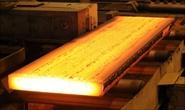Market Segment

September 29, 2017
CSI Makes Rerollers’ Case for ‘Buy American’
Written by Tim Triplett
In its comments on President Trump’s “Buy America” executive order, California Steel Industries (CSI) makes a convincing case for steel companies that process slabs not “melted and poured” in the United States.
In April, President Trump instructed all federal agencies to assess their compliance with Buy America/Buy American policies (which have an important distinction, as CSI points out). The public comment period ended last week. A final report is due to President Trump by Nov. 24.
As stated in its comments, CSI supports Buy American protections for U.S. companies and U.S. jobs. Buy American requires that steel products directly procured by the U.S. government have been “substantially transformed” in the U.S., with the final product manufactured in the U.S., regardless of where the steel was first “melted.” In contrast, CSI argues, Buy America is a biased, antiquated standard requiring that only steel “melted and poured” in the U.S. complies for use in certain federally-assisted projects, regardless of how much additional downstream value is added in the U.S. after melting. “Buy America picks winners and losers among American companies. As a result, we disagree with our peers at AISI and their comments in favor of the Buy America ‘melted in the U.S.’ requirement as the domestic preference standard for the changing U.S. steel industry.”
![]() CSI is the largest steel mill in the western U.S. with the capacity to produce up to 3 million tons of steel sheet and pipe annually. As a slab converter or reroller, CSI is dependent on slabs from other companies—and, as it turns out, from other countries. Early in its history, CSI had a ready supply of domestic slab, with nearly 40 integrated mills making slab in the U.S. However, over the past three decades, minimills or “scrap remelters,” have forced many of the integrated mills out of business. Today, there are just a handful that produce slabs, located far away in the East and Midwest, and they are not in the business of making slabs for sale to other steel companies. Located on the West Coast, and with no viable domestic source, CSI has little choice but to buy fairly traded slabs from offshore (mostly Mexico, Brazil and Japan), the company says.
CSI is the largest steel mill in the western U.S. with the capacity to produce up to 3 million tons of steel sheet and pipe annually. As a slab converter or reroller, CSI is dependent on slabs from other companies—and, as it turns out, from other countries. Early in its history, CSI had a ready supply of domestic slab, with nearly 40 integrated mills making slab in the U.S. However, over the past three decades, minimills or “scrap remelters,” have forced many of the integrated mills out of business. Today, there are just a handful that produce slabs, located far away in the East and Midwest, and they are not in the business of making slabs for sale to other steel companies. Located on the West Coast, and with no viable domestic source, CSI has little choice but to buy fairly traded slabs from offshore (mostly Mexico, Brazil and Japan), the company says.
As CSI notes in its comments, all three types of mills—integrated mills, slab converters and scrap remelters—rely on feedstock from foreign markets. Minimills remelt imported scrap and pig iron, while integrated mills source iron ore and other raw materials from all over the world. “Allowing certain steel companies waivers and exemptions from foreign inputs while refusing equitable treatment to other domestic steel companies creates an unfair playing field domestically and runs counter to our efforts together against unfairly-traded imports of finished goods,” CSI contends.
Today, including CSI, there are at least four U.S. mills supplying flat-rolled products using imported slab as their feedstock. While it is true the slabs are not melted and poured in the U.S., the process of converting steel slabs to coils is complex and labor intensive and it involves the employment of thousands of steelworkers, engineers, support staff and parts suppliers. CSI estimates the four slab conversion mills support 30,000 direct and indirect U.S. jobs.
“CSI’s business model using imported raw material (slab) to produce Made-in-America sheet and pipe has kept steelworker jobs from disappearing entirely at our site. We hope the administration recognizes the dynamics of the U.S. steel industry and understands the importance of steel production and manufacturing west of the Mississippi River before adopting policies that completely change the competitive landscape and harm some U.S. companies to benefit others,” the company concluded in its comments.
To read the full text of CSI’s remarks, click here.
Written by Tim Triplett, Tim@SteelMarketUpdate.com







